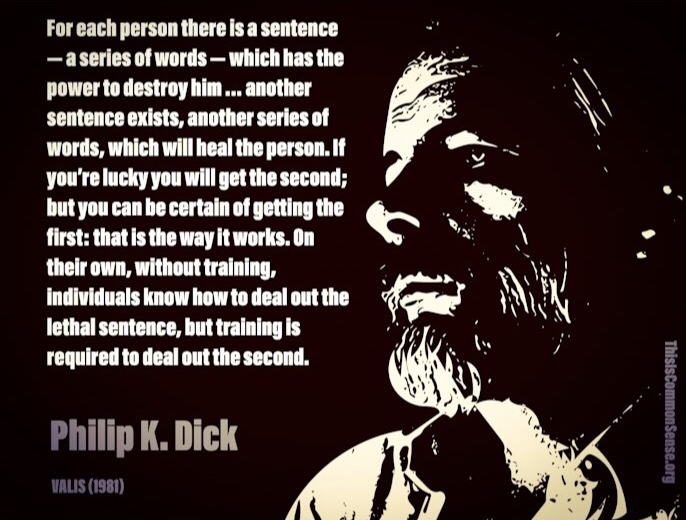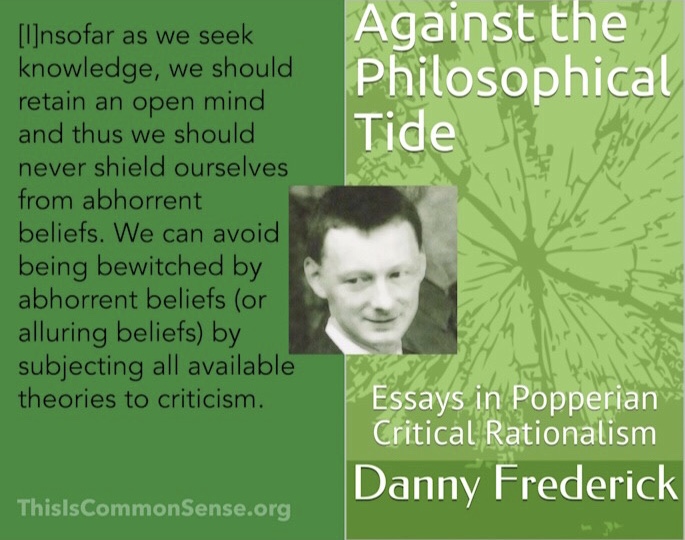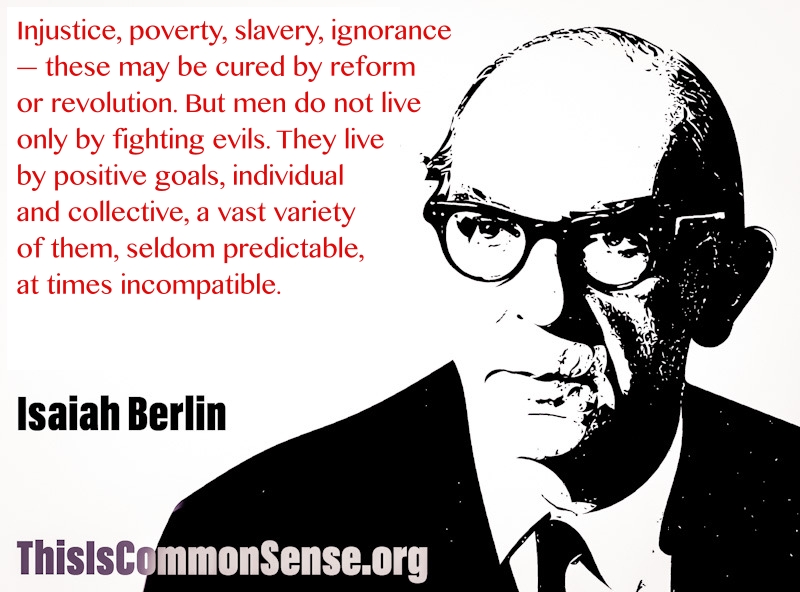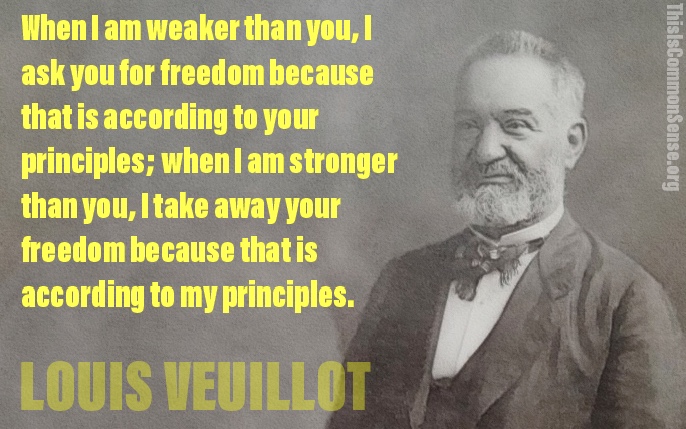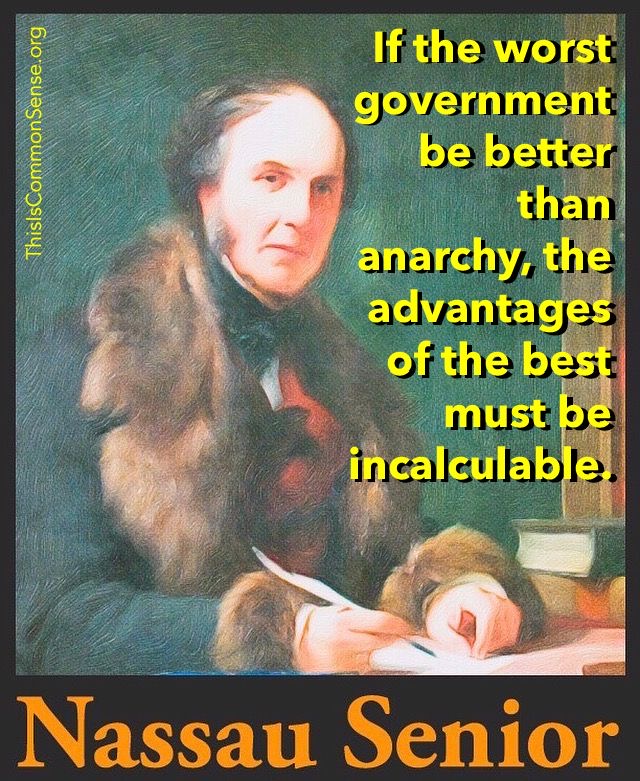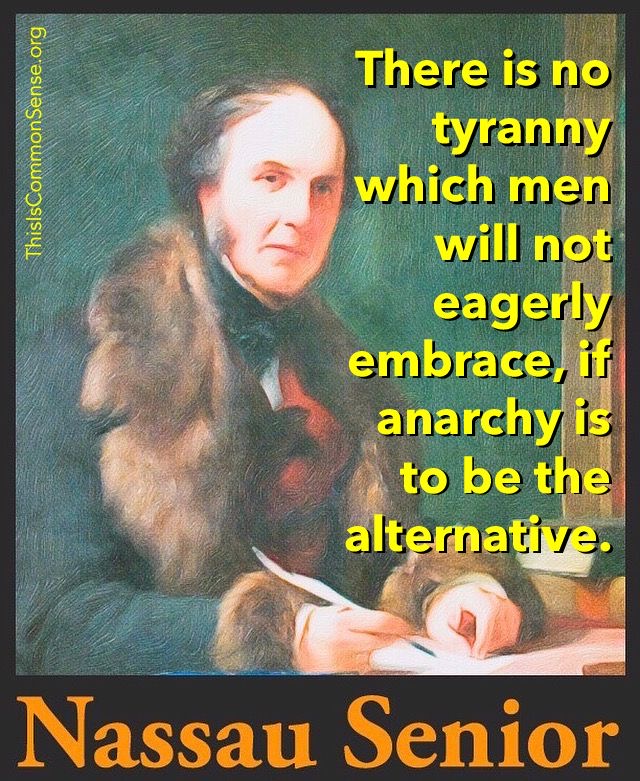For each person there is a sentence — a series of words — which has the power to destroy him … another sentence exists, another series of words, which will heal the person. If you’re lucky you will get the second; but you can be certain of getting the first: that is the way it works. On their own, without training, individuals know how to deal out the lethal sentence, but training is required to deal out the second.
Philip K. Dick, VALIS (1981).
Philip K. Dick
